Dry Eye Risk factors
Medical conditions and hormonal changes such as Menopause can result in eyes becoming dry. Read our info on what medical conditions could be risk factors for dry eyes.

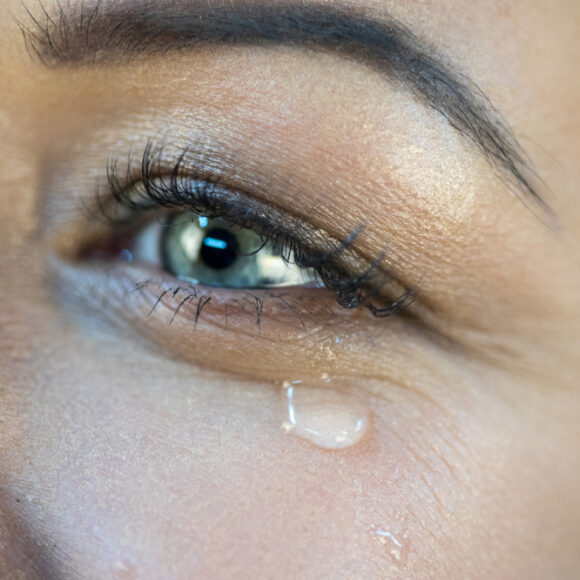
We don’t just produce tears when we’re sad, we produce them all the time in small quantities to help lubricate and protect the surface of the eye. When that goes wrong and we don’t have enough tears, dry spots can form, and bacteria can more easily invade increasing the risk of infection.
Our environment and lifestyle can cause us to produce less tears or our healthy tears to evaporate too quickly. That can trigger dry eye or cause existing dry eyes to get worse. Because of this, it’s a good idea to be aware of the common culprits in our day-to-day lives.
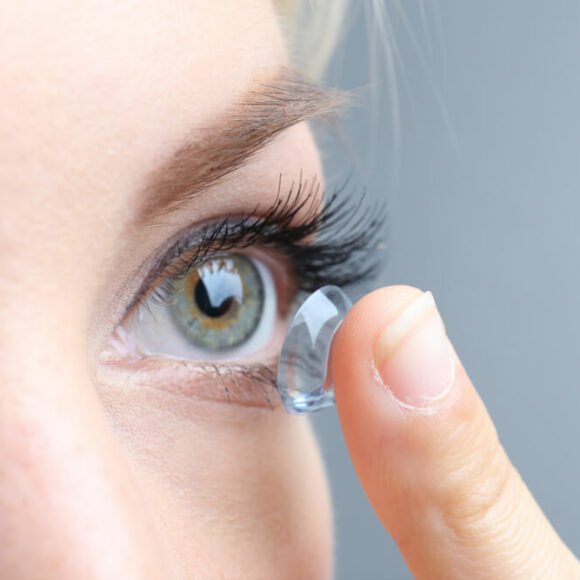
Winter weather: Shelter your eyes from windy days by wearing sunglasses and prepare for cold dry spells by using eye drops for added protection.17
Screen time: Screen time reduces our blink rate so set a timer to take regular breaks and make sure your computer is at eye level, so you aren’t straining.18,19
Low humidity: Air conditioning, dry weather and sitting next to air vents can lead to low humidity. Using a humidifier can help.20
Beauty and skincare: Some people can be sensitive to the ingredients in products such as make-up and moisturisers. Try switching to hypoallergenic alternatives.21
Contact lenses: Try switching to glasses to give your eyes a break for a few hours a day or once a week and practice good hygiene.
Medication: Certain medications can reduce mucus production – an element of our tears – such as antihistamines, antidepressants, diuretics, and beta-blockers. Discuss this with your doctor before making changes.
Diet: A poor diet, drinking too much alcohol and not enough water can be dehydrating and lead to dry eyes.22
Smoking: Smoke is an irritant, so if you experience dry eyes, it’s another great excuse to ditch the habit.23
Travelling: Aeroplane cabins can be dehydrating with very dry air. Using eye drops can help avoid discomfort.24
Stress: Studies have shown that stress may play a key role in the development of dry eyes.25
Don’t forget about your gut flora! It’s shown to contribute towards healthy eyes, so eat a varied diet a rainbow of colours of fruit and vegetables and consider taking probiotics.
Some common medicines, including those for allergies, blood pressure and nasal congestion, as well as antidepressants, can lead to dry eyes. A simple change of treatment can help but speak to your doctor first.
Try to minimise your time in air-conditioned rooms without natural ventilation and motor vehicles, if you can.
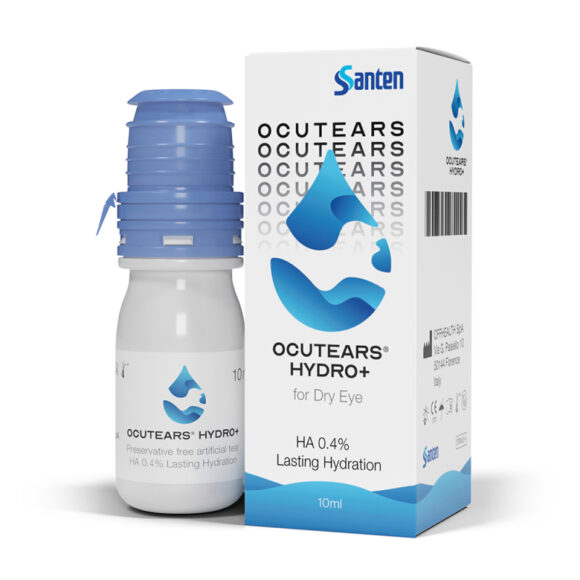
Ocutears Hydro+ eye drops provides long-lasting hydration and relief from sore, stinging, gritty, tired, heavy or watery eyes caused by dry eye. Always read the label.
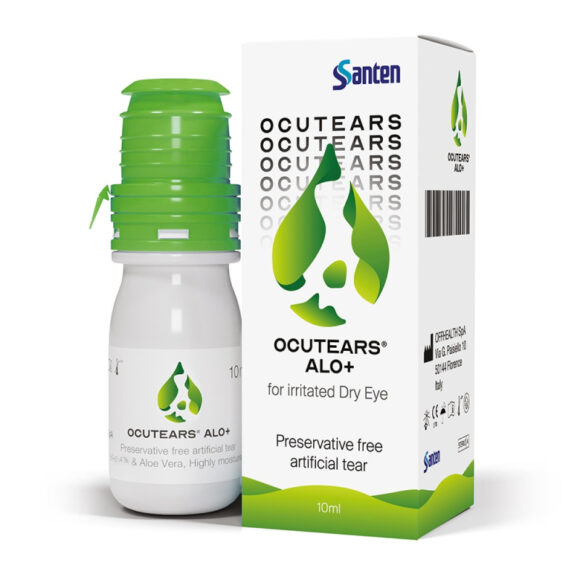
Ocutears Alo+ eye drops with aloe vera relieves symptoms of red, irritated and sensitive eyes for prolonged freshness and long-lasting comfort.
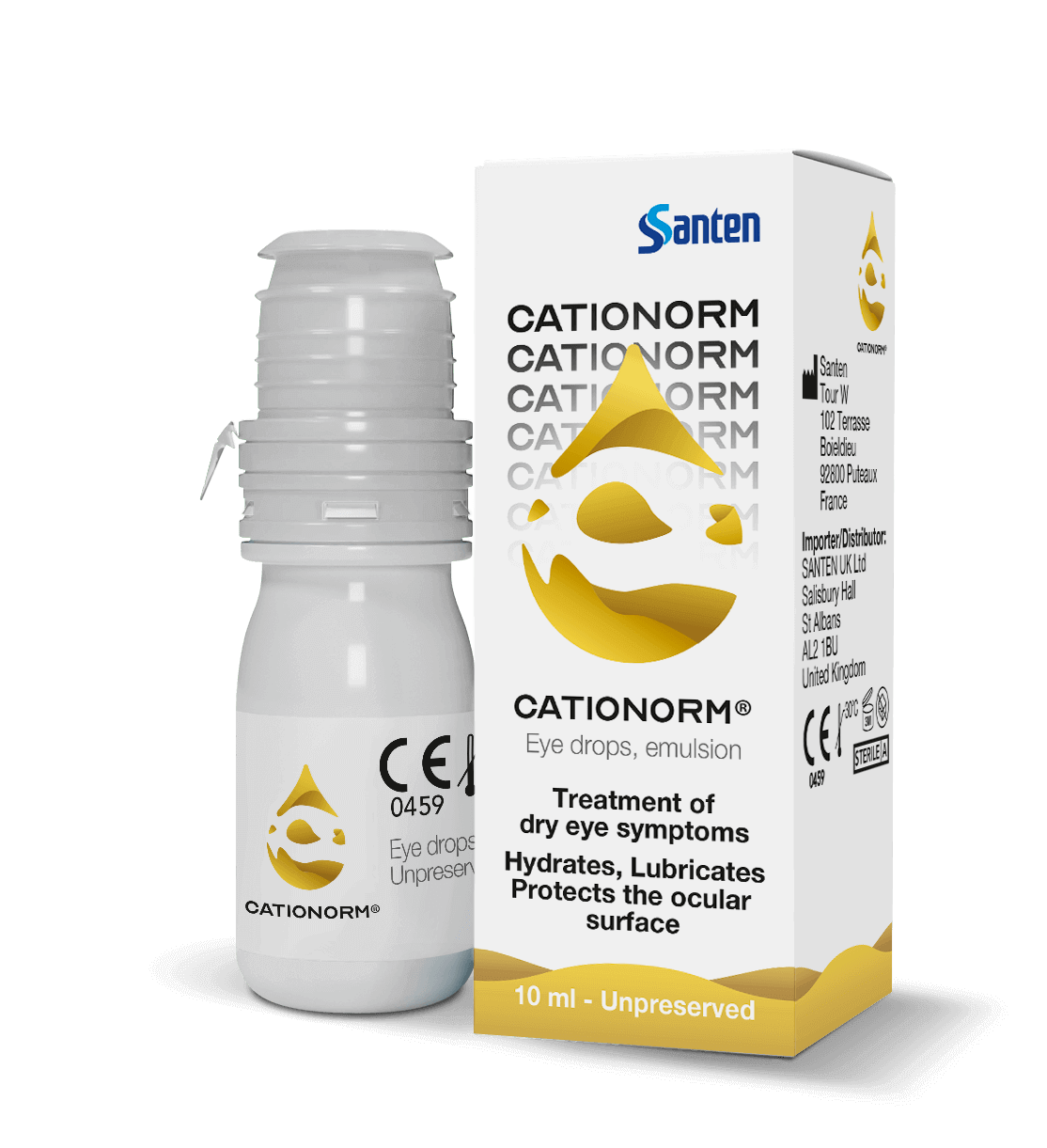
Cationorm® is a first-of-a-kind eye drop that acts like the body’s natural tears to provide long-lasting relief from the uncomfortable symptoms of dry eyes. Always read the label.
Always read the label
Medical conditions and hormonal changes such as Menopause can result in eyes becoming dry. Read our info on what medical conditions could be risk factors for dry eyes.

22. https://www.webmd.com/eye-health/dry-eyes-home-remedies
23. https://www.nhs.uk/conditions/dry-eyes/
24. Tesón et al. Invest Ophthalmol Vis Sci. 2013;54(3), 2093-2099
25. https://pubmed.ncbi.nlm.nih.gov/30585856/
26. https://www.nhs.uk/conditions/dry-eyes/
27. https://www.charlotteoptometry.com/how-to-prevent-winter-dry-eyes
28. https://www.nhs.uk/conditions/dry-eyes/
29. https://dryeyedirectory.com/dry-eye-treatment/
30. https://www.nhs.uk/conditions/dry-eyes/
31. https://www.webmd.com/eye-health/dry-eyes-home-remedies
32. https://www.ncbi.nlm.nih.gov/pmc/articles/PMC7699870/
33. https://www.nhs.uk/conditions/dry-eyes/
34. https://www.nei.nih.gov/learn-about-eye-health/eye-conditions-and-diseases/dry-eye